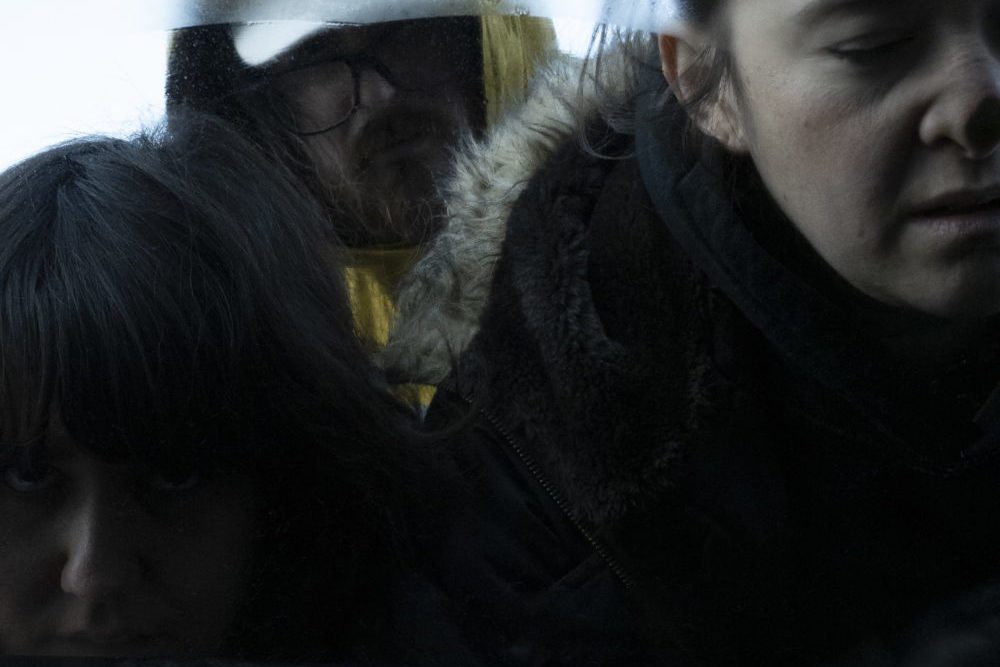

The world might have opened back up in 2021, but it was still a year branded with heartache, sorrow, and grief. Even if you didn’t endure the death of a loved one, you likely knew someone who did 一 or perhaps you wandered through some of the biggest records of the year and found yourself replaying your own miseries. Last year, loss in all its forms, including divorce, seemed to permeate every corner of existence.
Through a series of several mainstream releases, including Carly Pearce’s 29 and Adele’s 30, 2021 was the unequivocal year of divorce, heartbreak, and grief. An outpouring of collective pain, whether from death or severed friendships, wormed into songwriting in a remarkable, cathartic way. Artists sought as much solace as everyday folks, marking the second year of an ongoing pandemic with deep, indelible scars.
Divorce albums are not a new conceit. Historically, singer-songwriters have long written about very public breakups as a way to compartmentalize and cope. Many of music’s greatest divorce records, including Willie Nelson’s Phases and Stages, Tammy Wynette’s D-I-V-O-R-C-E, and Marvin Gaye’s Here, My Dear, as well as more recent LPs from The Chicks (Gaslighter) and Miranda Lambert (The Weight of These Wings), served to reclaim the public narrative.
Tabloid headlines are nothing if not salacious in their details, frequently pitting one public figure against another in a way to sell magazines or get clicks. But behind those shiny veneers are living, breathing human beings simply trying to process their trauma. Yes, heartbreak is a form of trauma. In peeling back the emotional and psychological layers through storytelling, singers and songwriters find an agency they otherwise wouldn’t have.
Adele’s 30 was the most anticipated release of the year. Six years since her last studio record, 30 showcased the British performer making sense of her pain, flitting through the effects the divorce had on her son, their relationship in and out of the watery depths, and her desperate search to find herself once more. “To Be Loved” is the crown jewel of not only the record but her career so-far, as Adele gave her everything in a nearly-seven-minute epic best summed up with this refrain: “Let it be known that I tried.” Elsewhere, subtler yet still skin-scalding moments like “I Drink Wine” and “Strangers by Nature” permitted her to feel those emotions, raw and unfettered. While she’s felt anger in her divorce, 30 is not “an angry divorced woman” record; rather, it’s one of absolution from the past and the many tattered pages of resentment and misery.
Kelly Clarkson endured her own skirmish in the divorce spotlight, as well. A jovial person by nature, it seems fitting she funneled her heartache into a holiday album. When Christmas Comes Around… worked in much the same way as 30. The 12-song record dipped between jubilantly sashaying through her favorite classics, including “It’s Beginning to Look a Lot Like Christmas,” “Rockin’ Around the Christmas Tree,” and “Santa Baby,” and twirling through anguish like vibrantly colored ribbons. In the opening song, “Merry Christmas Baby,” Clarkson clued you into how she was feeling: “You can keep the charming lines/And you can keep your wandering hands and eyes.” Her thorny-laced lyrics coarse through the record, namely in two other originals “Christmas Isn’t Canceled (Just You)” and “Merry Christmas (To the One I Used to Know),” gloriously tinseled exorcisms. But in the end, as attested through standout “Blessed,” Clarkson emerged lighter and more self-possessed.
In the country world, Carly Pearce and Kacey Musgraves conjured up firestorms with 29 and star-crossed, respectively. Where Pearce soaked in modern-pressed traditional country, leaning upon fiddle, guitar, and other staple instruments, Musgraves stretched further into the pop world, using her much-acclaimed 2018 Golden Hour as a jumping off point. In both instances, the singer-songwriters expressed the sting of betrayal that’s now forever stamped into the emotional fabric of their lives. “So I ain’t gonna tell you everything he did/But I’ll tell you what he didn’t do: treat me right, put me first, be a man of his word/Stay home ’cause he wanted to,” sang Pearce. She seemingly flipped expectations here with “What He Didn’t Do” — but did plenty of tea-spilling later on with songs like “Next Girl” and “Should’ve Known Better.”
Conversely, Musgraves’ star-crossed unlocked a throbbing, emotional center through traditional instruments buried beneath magical production choices. The title cut is a cinematic conversation-piece, dazzling with distortion and synths, as if she’s escaping her heartbreak through a universe-defying expedition. “Let’s go back to the beginning,” she whispered on “good wife,” guitar peeking up like whack-a-mole. Staging the record as a chronological tale allowed the listener to experience the rush of burning love in those early days to the wildfire and the charred aftermath in almost real time.
My parents were never married, but when they split, it forever changed me. The night of their separation is among my earliest memories; I remember it like it was yesterday. My older sister Katrina held me tightly in her arms, tears streaming down my face and a throaty wail squirming from my lungs. I rarely cried so hard as a kid, and even now I can feel that pain rising into my chest. It’s something you can never forget. When I listen to 29, 30, star-crossed, and even When Christmas Comes Around… that memory flashes just as red and hot as it did then. In my adulthood, that moment certainly feels much different, but emotional memory can be a helluva drug.
Any sort of grief is physiological. It’s far more than simply reliving those flashing polaroids. It’s the ungodly physical pains that rip through flesh and bone like it’s happening to you all over again. And it’s not an exclusive experience to heartbreak and divorce.
You’re grieving when you feel your chest tighten and you can barely breathe. It’s not dissimilar to experiencing death. When Olivia Rodrigo is lamenting young heartbreak on Sour or Taylor Swift is recounting her own in the long-awaited release of “All Too Well” (10 Minute Version) or GAYLE is delivering the kiss-off to end all kiss-offs with smash single “abcdefu,” grief lies at their confectionary cores. Grief is grief. It doesn’t matter what the exterior looks like; the emotional and physical responses are the same.
Glam-pop newcomer Jake Wesley Rogers, taking cues from Bowie and Elton John in style and musical approach, dressed up themes of loss and moving on with his latest EP, Pluto. Songs like “Weddings and Funerals,” in which he muses that the small moments define our lives much more than the big ones, and “Middle of Love,” containing the apt line “my grandma died ’cause that’s what people do” bowl you over with their insight. The musical accomplishment of the tracks themselves give Rogers’ words even more gravitas, allowing for a universal clarity.
One-off releases, such as Lindsey Stirling’s “Lose You Now,” an electrifying plea to hold onto her father’s memory, pulled sorrow further into the conversation. Xenia Rubino’s “Did My Best” did the same, a moving centerpiece to the year, while Zara Larsson dissected her own heartbreak with Poster Girl, and Hayley Williams learned to let go on FLOWERS for VASES / descansos.
It’s hard to comprehend that 2021 is really over, now firmly in our rearview mirror. But as we take stock of yet another year lost to a pandemic, we can begin to reflect upon the common threads which connect our lives. Sadness flows much further than this feature will allow, also present in the work of countless other artists, including Joshua Bassett, Dashboard Confessional, Billie Eilish, Lil Nas X, James Arthur, H.E.R., and Julien Baker.
Perhaps through experiencing these musical masterpieces, we can understand the personal and universal significance of pain in songwriting and to our everyday lives. I know without a doubt that I’ve come closer to figuring out how continue on in a world so utterly destroyed by tragedy. I have plenty to learn still — but for now, I’ll listen, drink wine, and cry.




